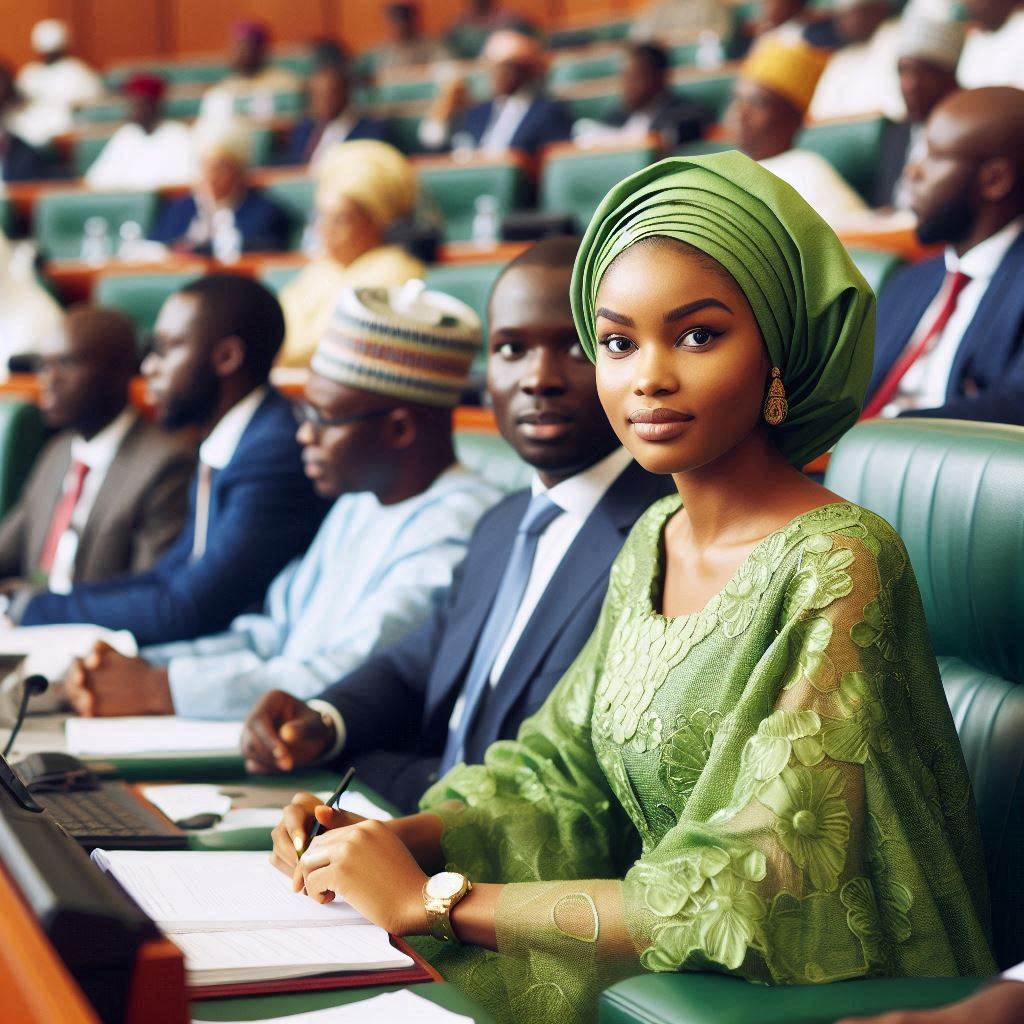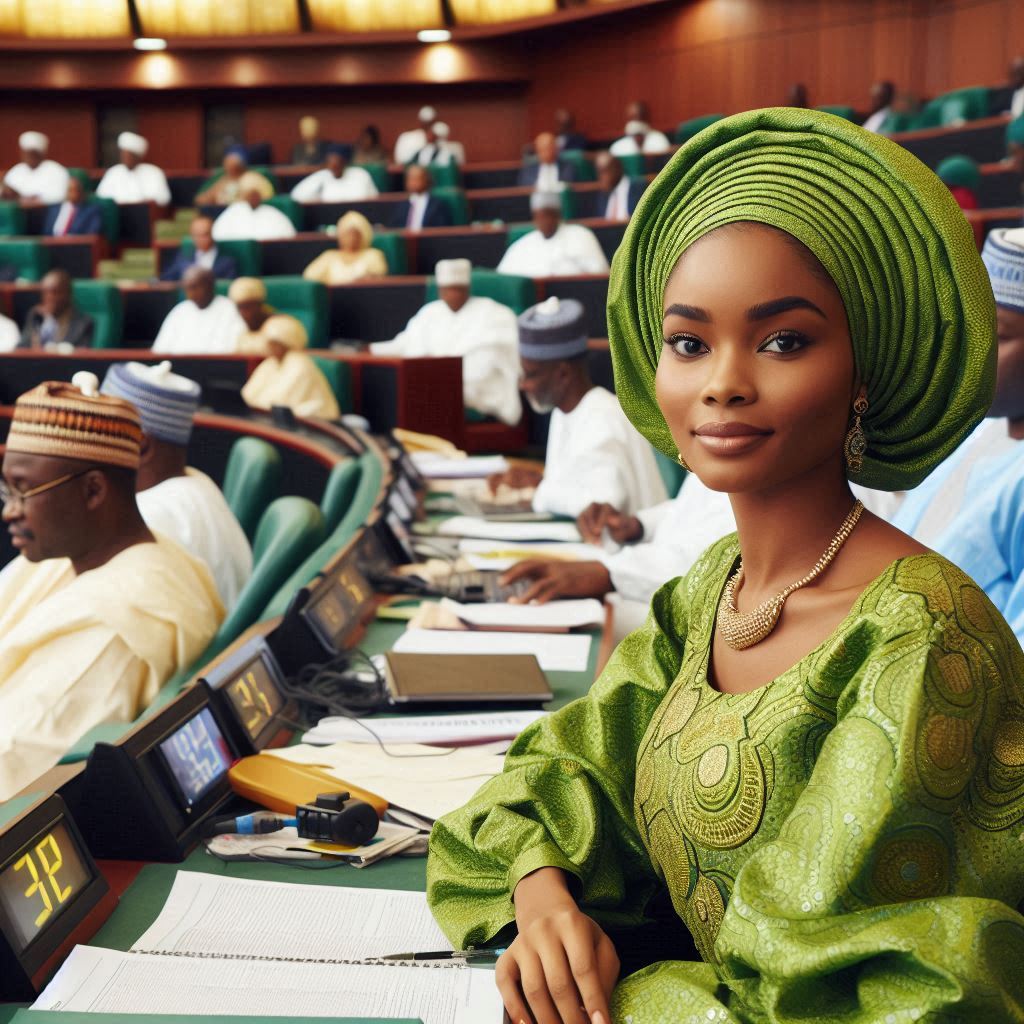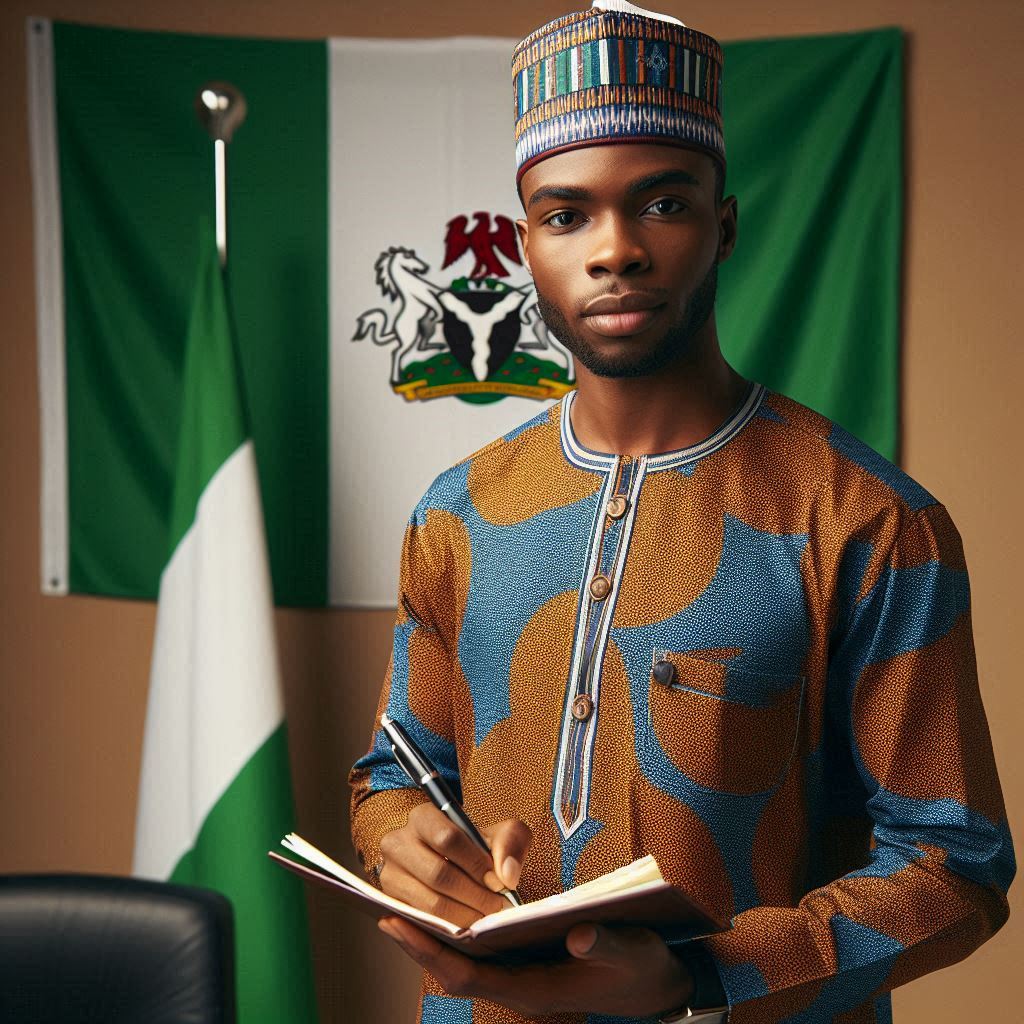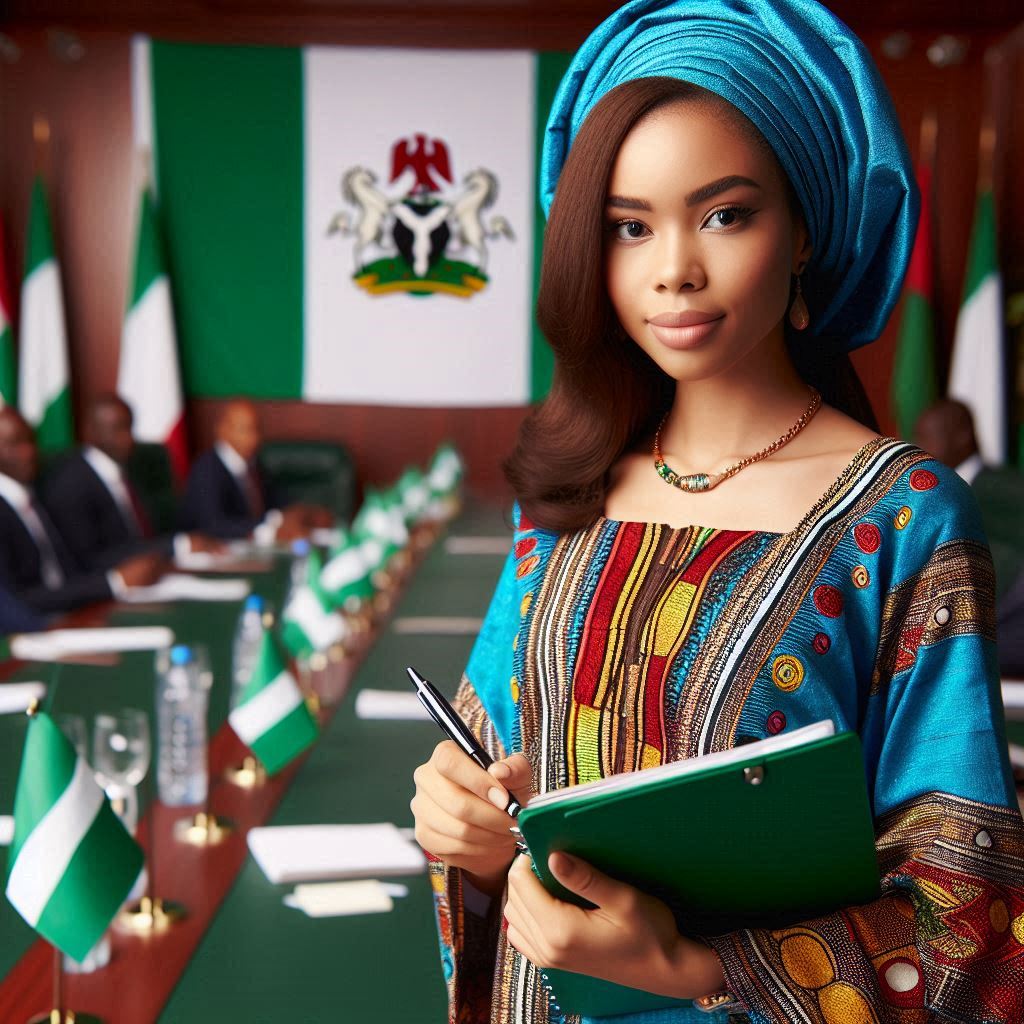Introduction
In the landscape of Nigerian international politics, the representation and participation of women remain notably low.
Despite strides towards gender equality in various sectors, women continue to encounter formidable challenges in attaining leadership roles and shaping diplomatic agendas.
Recognizing the significance of this issue, it is imperative to delve into the intricacies of the obstacles faced by women in Nigerian international politics.
By shedding light on these challenges, we not only acknowledge the existing disparities but also pave the way for meaningful discussions and actionable solutions.
Through critical analysis and insightful exploration, we will examine the various dimensions of these challenges and their implications for Nigerian society.
By articulating the importance of addressing gender disparities in international politics, we set the stage for advocacy, empowerment, and transformative change.
In essence, this introduction serves as a prelude to a comprehensive examination of the challenges faced by women in Nigerian international politics.
As we embark on this journey, let us remain steadfast in our commitment to fostering inclusivity, equality, and progress in the realm of global governance.
Historical Context
Historical Role of Women in Nigerian Politics
Throughout history, women in Nigeria have played significant but often overlooked roles in politics.
From grassroots activism to community leadership, their contributions have been instrumental in shaping the nation’s political landscape.
Progress Towards Gender Equality
In recent years, Nigeria has witnessed notable strides towards gender equality in politics.
The implementation of affirmative action policies and increased advocacy for women’s rights have led to greater representation of women in political institutions.
Examples of Influential Women
In Nigerian international politics, several women have risen to prominence, defying gender norms and stereotypes.
One such example is Ngozi Okonjo-Iweala, who served as Nigeria’s Finance Minister and later became the Director-General of the World Trade Organization.
Another influential figure is Amina Mohammed, who held various high-ranking positions in the Nigerian government and currently serves as the Deputy Secretary-General of the United Nations.
Additionally, Oby Ezekwesili, known for her role as a former Minister of Education and her advocacy for good governance and transparency, has made significant contributions to Nigerian and international politics.
These women have not only shattered glass ceilings but have also paved the way for future generations of female leaders in Nigerian international politics.
Therefore, while challenges persist, the historical role of women in Nigerian politics, along with recent progress towards gender equality, underscores the resilience and determination of women in shaping the nation’s political landscape.
By highlighting the achievements of influential women in Nigerian international politics, we celebrate their contributions and inspire greater participation and representation of women in political leadership roles.
As Nigeria continues its journey towards inclusive governance and equal representation, it is imperative to recognize and support the invaluable contributions of women in Nigerian international politics.
Through collective efforts and unwavering commitment to gender equality, we can create a more equitable and prosperous future for all.
Read: Comparing Communication Arts and Mass Communication
Cultural Barriers
Cultural attitudes towards women in positions of power
Women in Nigerian international politics face numerous cultural barriers that hinder their participation and success in this male-dominated field.
These cultural attitudes towards women in positions of power are deeply ingrained in Nigerian society and present significant challenges for women seeking to make their mark in politics.
The impact of traditional gender roles on women’s participation in politics
Traditional gender roles play a major role in shaping societal expectations and perceptions of women in politics.
In Nigeria, women are often expected to prioritize their roles as caregivers and homemakers, which can hinder their ability to fully engage in political activities.
This societal pressure to conform to traditional gender roles can limit women’s opportunities for advancement in the political arena.
Address challenges faced by women in balancing political responsibilities with societal expectations
One of the key challenges faced by women in Nigerian international politics is the difficulty of balancing their political responsibilities with societal expectations.
Women are often criticized and judged harshly for not fulfilling their duties as wives and mothers, which can create a significant barrier to their political ambitions.
This double standard places an unfair burden on women in politics, making it challenging for them to navigate the demands of their professional and personal lives.
Furthermore, the lack of support and mentorship for women in Nigerian international politics can exacerbate these cultural barriers.
Without the guidance and mentorship of more experienced female politicians, aspiring women leaders may struggle to navigate the complex political landscape and overcome the obstacles that stand in their way.
This lack of support can further isolate women in politics and limit their opportunities for advancement.
In order to overcome these cultural barriers, it is essential for Nigerian society to challenge outdated attitudes towards women in positions of power.
By promoting gender equality and empowering women to pursue their political ambitions, Nigeria can create a more inclusive and diverse political landscape that reflects the values and aspirations of its population.
Additionally, providing women with the necessary support and resources to succeed in politics can help to level the playing field and ensure that talented and capable women have the opportunity to contribute to the country’s governance.
Overall, addressing the cultural barriers that hinder women’s participation in Nigerian international politics is crucial for promoting gender equality and empowering women to fully engage in the political process.
By challenging traditional gender roles, providing support and mentorship, and creating a more inclusive political environment, Nigeria can unlock the full potential of its female leaders and pave the way for a more equitable and prosperous future for all.
Read: Language Arts Courses: What to Expect in Nigeria
Institutional Obstacles
Institutional Barriers
In Nigerian international politics, women encounter institutional barriers that impede their advancement.
These barriers include discriminatory laws, limited access to resources, and entrenched patriarchal norms within political institutions.
Lack of Gender Diversity
Political parties and government structures in Nigeria often lack gender diversity, further exacerbating the underrepresentation of women.
This lack of inclusivity limits opportunities for women to participate in decision-making processes and hold leadership positions.
Role of Patriarchal Systems
Patriarchal systems play a significant role in perpetuating these obstacles faced by women.
Cultural norms and traditional gender roles marginalize women, relegating them to subordinate positions and undermining their ability to actively engage in politics.
Essentially, the institutional barriers, lack of gender diversity, and patriarchal systems prevalent in Nigerian international politics pose formidable challenges to women’s advancement.
Addressing these obstacles requires comprehensive reforms, including legal and policy changes, as well as efforts to challenge and dismantle entrenched gender biases.
By advocating for gender equality, promoting inclusive governance structures, and empowering women to actively participate in politics, Nigeria can pave the way for a more equitable and representative political landscape.
Together, we must strive to create an environment where women are valued and empowered to contribute meaningfully to Nigerian international politics.
Read: Internship Opportunities for Communication Arts Students

Learn More: Top 10 Mass Communication Schools in Nigeria
See Related Content: Job Opportunities for Communication Graduates in Nigeria
Socio-economic Factors
Socio-Economic Factors Contribute to the Challenges Faced by Women in Politics
Women in Nigerian international politics face numerous socio-economic challenges that hinder their participation and success.
Unequal access to resources and opportunities stands as a primary barrier.
Women often have limited access to education and financial resources.
This lack of access restricts their ability to compete effectively in politics.
In many Nigerian communities, cultural norms still prioritize men’s roles over women’s roles.
These norms perpetuate a cycle of exclusion and marginalization.
Economic inequality further exacerbates the situation.
Women frequently earn less than men for the same work.
This wage gap limits their financial independence and political ambitions.
Additionally, women often have less access to political networks and mentorship opportunities.
Political parties and institutions remain male-dominated, creating an environment hostile to female participation.
Campaign funding and support often prioritize male candidates, leaving women at a significant disadvantage.
The Unequal Access to Resources and Opportunities for Women in Nigerian Society
Social expectations and family responsibilities also play a critical role.
Women are often expected to prioritize domestic duties over professional aspirations.
This societal pressure limits their time and energy for political involvement.
Furthermore, women in politics face heightened scrutiny and criticism compared to their male counterparts.
Media representation often reinforces negative stereotypes, undermining their credibility and authority.
Educational disparities contribute significantly to the challenges.
Many girls in Nigeria still lack access to quality education.
Without education, women struggle to gain the skills and knowledge necessary for political careers.
Even when educated, women face systemic biases in hiring and promotion within political spheres.
These biases hinder their advancement and perpetuate male dominance.
Access to healthcare also influences women’s political participation.
Poor health outcomes and limited healthcare services disproportionately affect women.
This impacts their ability to engage fully in political activities.
Women with health issues or caregiving responsibilities find it challenging to sustain political careers.
The Intersectionality of Gender, Class, and Ethnicity in Shaping Women’s Experiences in International Politics
The intersectionality of gender, class, and ethnicity compounds these challenges.
Women from lower socio-economic backgrounds face greater barriers.
They struggle to access basic resources, let alone political opportunities.
Ethnic minority women encounter additional layers of discrimination and exclusion.
These intersecting identities shape their experiences and limit their political engagement.
The lack of representation and role models further discourages women from entering politics.
Seeing few women in leadership roles reinforces the perception that politics is a male domain.
This absence of female role models creates a cycle of underrepresentation.
Young women do not see a viable path for themselves in politics.
Addressing these socio-economic challenges requires comprehensive policy changes.
Ensuring equal access to education and healthcare is crucial.
Implementing gender-sensitive policies in political institutions can promote greater female participation.
Providing financial support and mentorship programs for aspiring female politicians is essential.
Encouraging societal shifts in attitudes towards gender roles will also play a significant role.
Generally, socio-economic factors significantly contribute to the challenges faced by women in Nigerian international politics.
Addressing these issues demands a multi-faceted approach.
By tackling educational, economic, and social inequalities, Nigeria can create a more inclusive political landscape for women.
Read: Impact of Communication Arts on Nigerian Media
Gain More Insights: Mass Communication Degree: Pros and Cons Nigeria
Advocacy and Empowerment
Initiatives and organizations working to empower women in Nigerian politics
- Several initiatives in Nigeria focus on empowering women in politics.
- One such organization is the Women in Politics Forum (WIPF).
- WIPF provides training and support for women aspiring to political leadership.
Advocacy plays a crucial role in promoting gender equality in political spaces
- Advocates work to change policies that hinder women from participating in politics.
- They also raise awareness about the importance of women’s representation in government.
- Activists organize campaigns and protests to demand equal opportunities for women in politics.
Success stories of Nigerian women breaking barriers in international politics
- Ngozi Okonjo-Iweala became the first female Director-General of the WTO.
- Amina J. Mohammed is the UN Deputy Secretary-General, advocating for sustainable development.
- Folorunsho Alakija is a prominent businesswoman and philanthropist, breaking stereotypes in politics.
These women have shown that with determination and support, gender equality in politics can be achieved.
See Related Content: History of Philosophy Education in Nigeria
Uncover the Details: English Language and Media Studies: Nigerian Perspective
Learn More: Importance of Christian Religious Studies for Students
Delve into the Subject: Exchange Programs for Nigerian Chinese Studies Students
Conclusion
Women in Nigerian international politics face numerous challenges.
They encounter limited access to resources and persistent socio-economic barriers.
Cultural norms often prioritize men’s roles over women’s, hindering women’s political participation.
Economic inequality and lack of education further restrict women’s opportunities in politics.
Additionally, women face heightened scrutiny and criticism, discouraging many from pursuing political careers.
These challenges are compounded by a lack of political networks and mentorship opportunities.
Campaign funding often prioritizes male candidates, leaving women at a significant disadvantage.
We must call on individuals and institutions to actively support and empower women in political leadership roles.
Encouraging female political participation will create a more inclusive and equitable society.
By tackling these challenges, we pave the way for a brighter future for women in Nigerian politics.
By addressing these issues, we not only support women but strengthen Nigerian democracy.
Empowered women leaders bring diverse perspectives and innovative solutions to political discourse.
Their inclusion is vital for creating a balanced and representative government.




